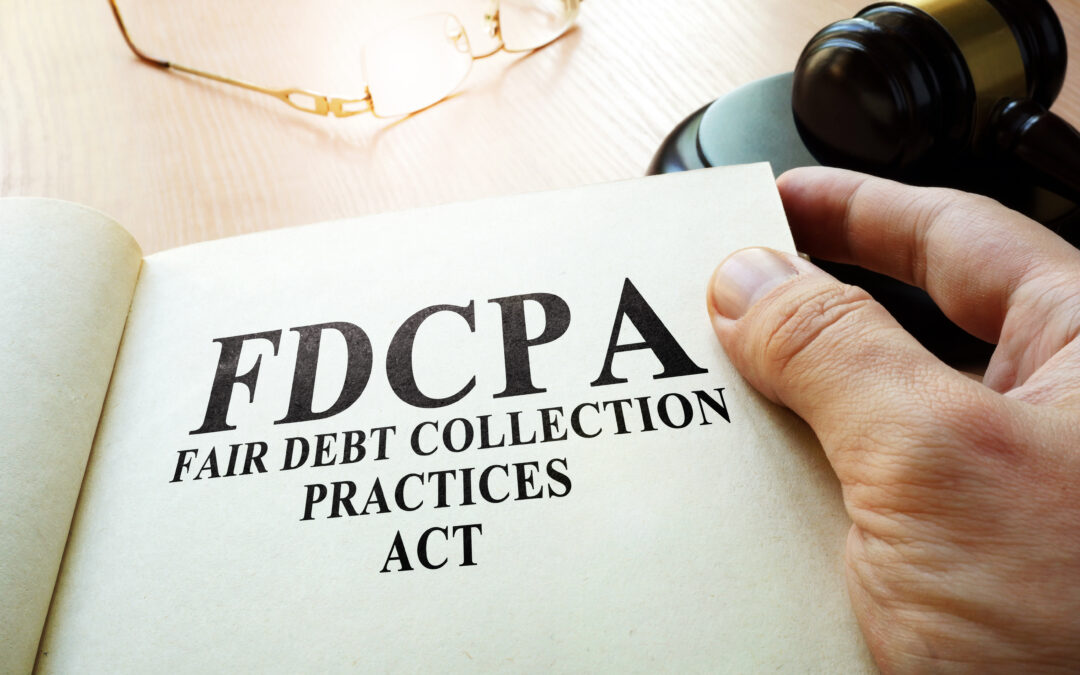Are debt collectors making you feel helpless? Do their actions border on abuse? You’ll be glad to know that you can do something about it – in fact, you have more rights than you might realize, and exercising these rights may give you the power you need to put debt collectors in their place.
In 2010, the federal government passed the Fair Debt Collection Practices Act (FDCPA). This federal law governs the practices of third-party debt collectors, who buy delinquent debt from credit card companies and other original creditors. FDCPA protects you and other consumers from predatory practices, such as phoning you in the middle of the night, using harassing language, and even bothering you to pay for a debt you don’t actually owe. Understanding the original FDCPA can help you maintain control during your next interaction with third-party debt collectors.
It’s also helpful to understand the updates to the FDCPA law, which went into effect in late 2021. The updates helped modernize the law by allowing debt collectors to use email, text messages, social media, and other new communications technology in their efforts to collect debts. The updates also clarified certain aspects of FDCPA. Ohio law also provides some additional consumer protections, so it is always wise to consult with an experienced attorney who understands the intricacies of these laws and updates.
How the Fair Debt Collection Practices Act Protects You
The FDCPA protects you in several ways.
FDPCA limits how and when third-party debt collectors communicate with you
Third-party debt collectors can no longer call at inconvenient times or places, and they cannot tell other third parties about your debt. More specifically, debt collectors cannot:
- Contact you before 8 am or after 9 pm
- Contact you at work, once you have told them not to
- Try to communicate directly with you if you have an attorney
- Tell your employer, neighbors, family members, or other third parties about your debt
- Continue to contact you after you have told them to stop
Telling the debt collector to stop over the phone isn’t enough – you must request in writing.
The law prohibits harassing or abusive practices
Harassment is more than just asking repeatedly for money: it involves the day-to-day practice of trying to coerce you into doing something you wouldn’t normally do. Under FDPCA, debt collectors cannot:
- Use profane language
- Threaten to use or use violence
- Call you repeatedly
- Call you to collect payment without telling you that they are debt collectors
- List your debt for public sale
Debt collectors must be truthful
Debt collectors cannot misrepresent the amount of debt, whether it has passed the statutes of limitations, legal repercussions for not paying the debt, or who they are. FDCPA also prohibits third-party debt collectors from:
- Pressuring you into giving them a post-dated check out of fear that you’ll be prosecuted
- Depositing a post-dated check before your payment date
- Threatening to take your property
- Collecting more than you owe
For more information about the Fair Debt Collection Practices Act, contact Cozmyk Law for a free evaluation of your case. You may also call us at (877) 570-4440. We are the experienced Ohio foreclosure attorneys you need for the best legal outcome possible. Cozmyk Law can provide you with all the information necessary to make an informed decision about debt collection.


